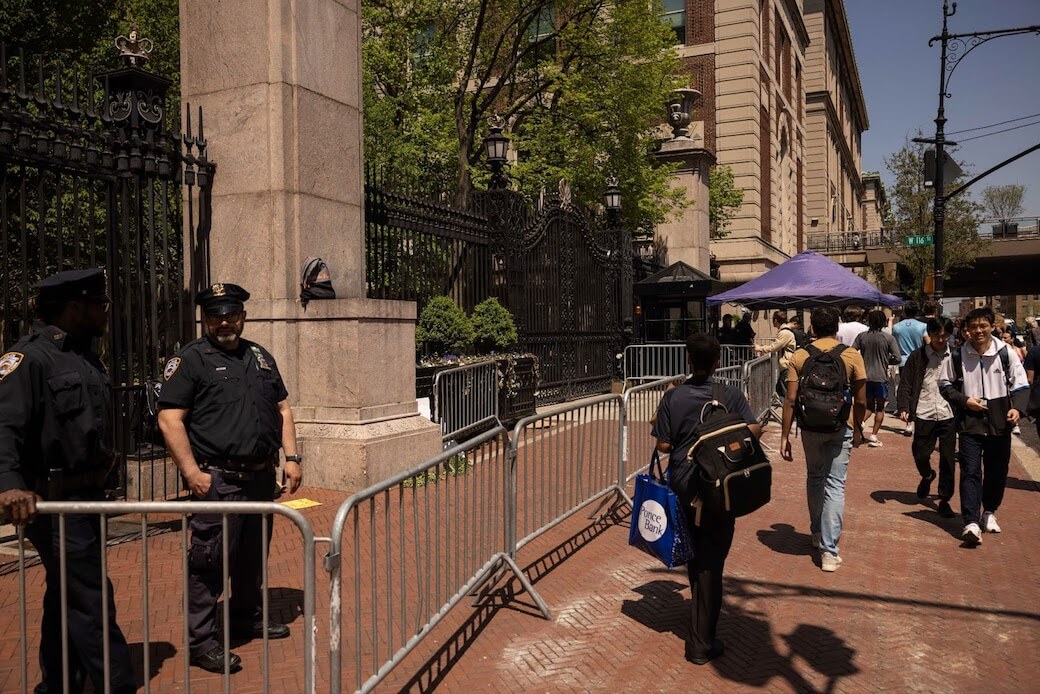It’s no easy task to cover your community when people who think civil war is inevitable show up at protests and political rallies. It’s hard to inform the public when traditionally humdrum school board races become referendums on the moral future of the nation.
As local and state officials gird themselves for a 2024 election season, we kicked off Poynter’s Beat Academy 2024 with the first of two webinars to help local and regional reporters cover movements that strain the fabric of civil life.
Over 70 journalists from Alabama to Maine, from Wisconsin to California, tuned in Feb. 1. Here’s a few highlights they told us they were taking back to their newsroom.
Avoid stock phrases
Taking the advice of The Texas Tribune’s Robert Downen: Dump the “isms.” Words like “extremism” have lost their meaning with overuse. VoteBeat doesn’t use the phrase “election denier.”
Instead, take the time to relay the actual beliefs as the people you’re interviewing state them.
Ask three key questions
Citizens often disagree passionately. But when you see something that crosses the line and breaks with norms, Protect Democracy’s Jennifer Dresden said journalists should look at three features before deciding how to report on it.
- Is this actually new and changes how some piece of our democracy works?
- To what extent is it happening? Is this a one-off, or does it show up over and over?
- What’s the response of other political or civic actors? Do they reject and try to tamp down the activity, or do they remain silent or endorse it?
“Seeking out the answers to those three questions can help to distinguish between stories that really are about the erosion of democracy, and ones that might be about sort of the normal, rough-and-tumble politics that we have,” Dresden said. “Being judicious on that score is really really important.”
Know some basic stats
The Center for Strategic and International Studies crunched the data and found that right-wing groups were nine times more likely to instigate violent attacks and plots than left-wing groups. When it comes to weapons of choice, the right wing tends toward firearms, while the left-wingers favor using their fists and damaging property.
Get inside the groups
The members of organizations that hound election officials or promote intolerance are far from monolithic. They can differ in their ideas and motivations. Be open to this. The reporters in our session told how they connected with people on the inside of such groups and had meaty conversations. Some of those people became key sources.
Find the national ties
VoteBeat’s Arizona reporter Jen Fifield followed the money and learned that what looked like a grassroots effort targeting election boards was fueled by national dollars.
“Looking up campaign finance reports, PACs, and financial disclosures is really important, because then you’ll see where it’s coming from, and you’ll be able to find the leaders of those movements,” Fifield said.
Once you know that, she said, you track them and can guess what they’ll do next.
The beat goes on
As always, careful reporting drives good journalism. Be precise. Don’t assume. And if you’re trying to assess if a viewpoint is extreme, here’s my rule of thumb: Rely on the three guiding principles at the end of the pledge of allegiance: “with liberty and justice for all.”
Each idea matters. Freedom and fairness for everybody. Hitting the balance point across all three has long been this nation’s challenge, but somewhere in that mix, America finds its center line.
The further a position lies from that center line, the more extreme it is.
Beat Academy’s second session on extreme views is Feb. 15. We’ll spend time on the tactics of monitoring action at the local level and backgrounding candidates for links to extremists. Plus, we’ll lay out the landscape of researchers you can turn to, and talk about why extremism is showing up in nearly every beat.
Attending these sessions live or watching their recordings means you can apply for a competitive expenses-paid advanced workshop in Chicago.
Participants can compete for one of three $10,000 reporting grants. Thanks to the Joyce Foundation for their support of this work.
Upcoming future Beat Academy sessions are:
- Auditing ARPA and IRA: How to report on Biden’s promise to communities (Feb. 29)
- Immigration in Focus: How domestic labor demand and politically-driven immigrant busing expose flaws in the system (March 14; El Paso workshop June 5-7)
- Economic Realities: Understanding your local economy and telling compelling stories centered on people and families. (April 4, writing session June 13)
- Transgender Coverage: Avoiding rhetoric to deliver meaningful journalism (April 18, May 2)
- New Healthcare Dynamics: What medical AI and the lack of long-term care choices mean for your communities (May 30, Sept. 26)
- Vote Watch 2024: What’s on the line for your state’s voting system? (July 11)
- Climate Change: Finding the angle in any beat (Sept. 12)







